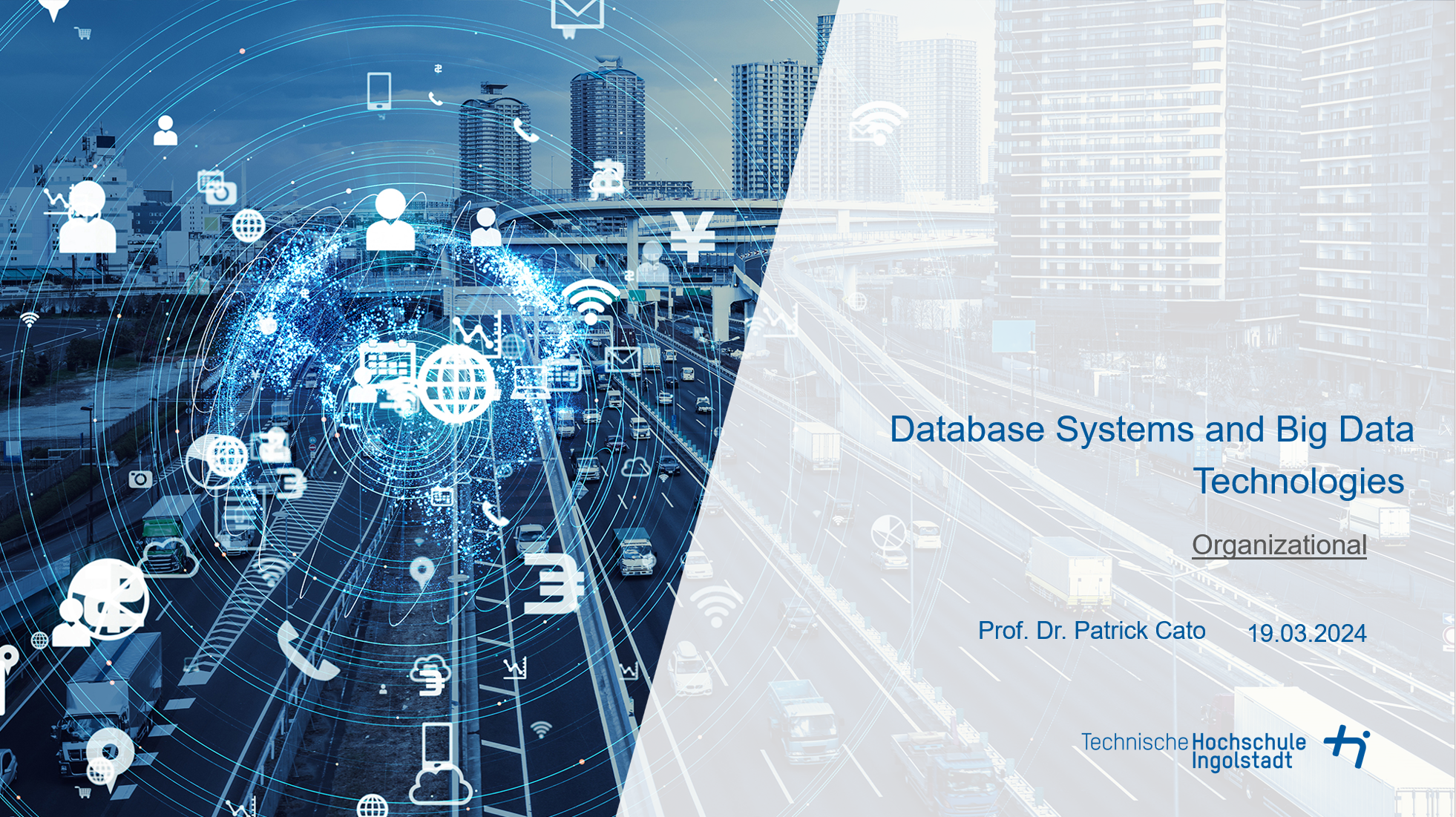Allgemeine Informationen rund um die Kurse von R. Mondal
- Dozent/in: Rahul Mondal
Weitere Kurse
- Dozent/in: Patrick Cato
- Dozent/in: Rahul Mondal
- Dozent/in: Patrick Cato
- Dozent/in: Rahul Mondal
- Dozent/in: Patrick Cato
- Dozent/in: Rahul Mondal
- Dozent/in: Beate Navarro Bullock
- Dozent/in: Patrick Cato
- Dozent/in: Rahul Mondal

This course provides a comprehensive introduction to big data and databases, covering both theoretical concepts and practical applications. Students will learn about various data models, query languages, transaction management, physical design considerations, and popular database systems used in modern computing environments.
Course Outline:
- Introduction to Big Data and Databases
- Conceptual Data Model
- Relational Data Model
- SQL - Structured Query Language (CAI)
- SQL2 - Advanced SQL (CAI)
- Transactions (CAI)
- Physical Design and Secondary Index (CAI)
- PostgreSQL (CAI)
- NoSQL (CAI)
- MongoDB (CAI)
- Neo4j (CAI)
- Redis (CAI)
- Hadoop (CAI)
- HBase (CAI)
- Apache Spark
- Dozent/in: Patrick Cato
- Dozent/in: Rahul Mondal